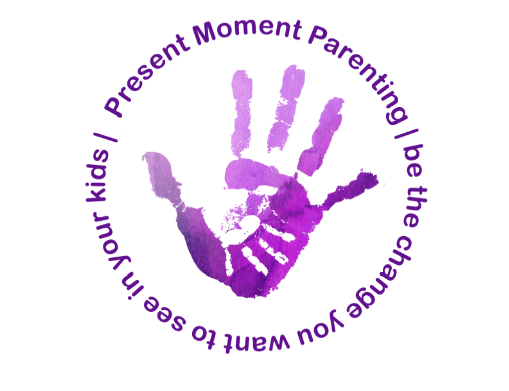
I don’t believe that there is a parent on this planet who consciously and deliberately intends to reject their child. Rejection comes in with deep unconsciousness, with misinformation, with self-absorption, and with typical daily busy-ness and distraction.
When we’re conscious, and thinking about it, we go out of our way to give our children messages of approval, love and worthiness. But what happens when we’re not aware? What are they learning from our distraction, from our body language, and from our silence?
When we’re conscious, and thinking about it, we go out of our way to give our children messages of approval, love and worthiness. But what happens when we’re not aware? What are they learning from our distraction, from our body language, and from our silence?
There has been many an article written on the modern parent and their level of distraction and disengagement due to technology. I’m repeating it here because it still appears that the message isn’t getting through. When children have your full presence they know they are loved and worthy of your time. When you only interact with them over the top of your screen, or with a disembodied voice as you text or type, the message that they get is quite the opposite.
Small children, particularly, tend to look up every few seconds from what they’re doing, hoping to meet the approving eye and smile of their caregivers. The silent message when they don’t find the engagement of an interested adult is that they are not interesting enough to be responded to, that they are not pleasing to their parents, and that what they are doing is not worthwhile.
Even in technology-free environments this kind of distraction is rampant. We’re not a particularly present species – we tend to wander in our minds into past transgressions, future worries and into escapist fantasies.
Children, in contrast, live very much in the here and now. They are fascinated by the world exactly as it presents itself and are not trying to escape it or control it. This means that we are not meeting our children where they are – we may as well be in another room (or on another planet). To truly have relationship with another human being we need to connect in space and time. This requires some effort for those of us lost in the mental quagmire, but when we do, we tell our children that they are worth the effort.
When we come into the presence of our lives and of our children, we are also less likely to give off the other unconscious signals of rejection that manifest through our body language and tone of voice.
Shrugs. Eye rolling. Tonal changes. Dismissive hand movements. There are hundreds of silent ways that we can tell our children that they're not worth our time, that we can't handle them, that they’re annoying or too much trouble.
And then there are also the things we don’t say. For example, only telling them we love them when they are behaving in a way that we deem acceptable, and being silent when they are struggling emotionally or behaviourally. So much is communicated through a purposefully timed silence.
Children are constantly making assumptions about themselves and the world and their place in it, and every interaction with us is an opportunity to confirm or dismiss the beliefs that they are forming.
Am I worthy? Am I loved? Is the world safe and loving? Are my needs important? Is life joyful? When we are present with our children we become aware of the millions of silent questions, messages and requests that they are making and we can help them to shape their perception of the world and themselves. In our silent responses as we meet their eyes, look up and smile, open ourselves for embrace and engage them in ways that are appropriate for the given moment, we confirm for them that they are welcome and accepted in this world and so open it up for them to explore, live and enjoy.
Small children, particularly, tend to look up every few seconds from what they’re doing, hoping to meet the approving eye and smile of their caregivers. The silent message when they don’t find the engagement of an interested adult is that they are not interesting enough to be responded to, that they are not pleasing to their parents, and that what they are doing is not worthwhile.
Even in technology-free environments this kind of distraction is rampant. We’re not a particularly present species – we tend to wander in our minds into past transgressions, future worries and into escapist fantasies.
Children, in contrast, live very much in the here and now. They are fascinated by the world exactly as it presents itself and are not trying to escape it or control it. This means that we are not meeting our children where they are – we may as well be in another room (or on another planet). To truly have relationship with another human being we need to connect in space and time. This requires some effort for those of us lost in the mental quagmire, but when we do, we tell our children that they are worth the effort.
When we come into the presence of our lives and of our children, we are also less likely to give off the other unconscious signals of rejection that manifest through our body language and tone of voice.
Shrugs. Eye rolling. Tonal changes. Dismissive hand movements. There are hundreds of silent ways that we can tell our children that they're not worth our time, that we can't handle them, that they’re annoying or too much trouble.
And then there are also the things we don’t say. For example, only telling them we love them when they are behaving in a way that we deem acceptable, and being silent when they are struggling emotionally or behaviourally. So much is communicated through a purposefully timed silence.
Children are constantly making assumptions about themselves and the world and their place in it, and every interaction with us is an opportunity to confirm or dismiss the beliefs that they are forming.
Am I worthy? Am I loved? Is the world safe and loving? Are my needs important? Is life joyful? When we are present with our children we become aware of the millions of silent questions, messages and requests that they are making and we can help them to shape their perception of the world and themselves. In our silent responses as we meet their eyes, look up and smile, open ourselves for embrace and engage them in ways that are appropriate for the given moment, we confirm for them that they are welcome and accepted in this world and so open it up for them to explore, live and enjoy.







 RSS Feed
RSS Feed